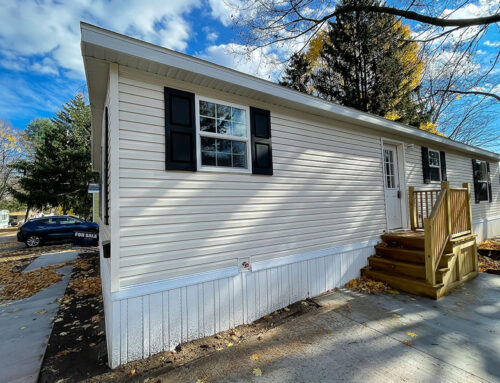I bought a used car from my brother’s buddy many years ago. He seemed like a respectable guy, and the car appeared to be well-maintained and reasonably priced. I was saving some money off the book value, so I figured, why not? He asked to meet me at my home and that I have the cash for the purchase. My first indication that something was wrong came about when he merely wanted to take my payment and give me the title, which also had a lien on it. He then wanted to take my check and, on the same day, present it as a down payment on a new BMW. At that point, I was pretty sure he’d never sold a car before. We got things figured out and it was a done deal, but things didn’t necessarily get better. The engine blew on the car a few months later. I scrapped the car and cut my losses. Lesson learned.
The car was only a $2,500 lesson but when I invest in real estate, I am much more cautious. My guard is always up when considering a deal on a house that is listed for much less than the seller owes. The loss on the car I dealt with, but I need all my ducks in a row when shelling out five- or six-figures on investment properties. Knowing how to buy a short sale in New Jersey—and all the things to be cautious of—has saved me a lot of grief and time.
How to Buy a Short Sale in New Jersey
When a homeowner can’t afford payments on a property that is worth less than what they owe on the mortgage, a short sale is a viable option for all parties involved. Homeowners need out from under their financial problem. And, banks don’t want to be in the real estate business so they are usually willing to accept less than the mortgage balance to avoid having to sell the home after foreclosing on it. As a real estate investor in the Garden State, I’ve stumbled on a good deal or two through this process. But, like my car-buying experience, short sales do present a number of hurdles to clear before ownership transfers. Here’s a few key points of what you need to do in the process.
1. Find a good lead. As a buyer, the first step to finding short sales is connecting with distressed home sellers. You can search local courthouse filings for pre-foreclosures. Otherwise, you might check with a local real estate agent to find short sales. Keep in mind, however, that just because the house is in the pre-foreclosure phase, doesn’t necessarily mean it has been approved for a short sale or even up for sale just yet. You could end up chasing your tail if the lead isn’t solid.
2. Determine the market value. Once you have established that the home is actually being sold short, check recent sale prices, or comps, of houses within a tight radius of the property in question. You should have no intention of paying full market price yet you need to know the property’s potential in order to achieve any returns on the investment. It won’t do you any good to invest in it if the after repair value is on par with the sale price.
3. Calculate the rehab costs. You’ll want to do a walk-through of the house and, of course, calculate how much it will cost to bring the house up to full market value. Be careful with this step. You don’t want to miss finding out that the house needs a new HVAC system or water well, for instance. That’s why you might want to consider shelling out for a home inspection. It could save you from investing any more time and money into a potential money pit.
4. Make an offer. Once you run the numbers and are comfortable with the potential after-repair returns, go ahead and make an offer—but deciding how much can be tricky. If the house is already listed for sale on the MLS, beware that the list price could be faulty. Sometimes, for instance, the lender doesn’t actually set a price and so the real estate agent plugs in some numbers that may or may not make sense to you or the lender. Often, it’s anyone’s guess what the lender will actually accept.
5. Wait. Now it becomes a waiting game to see if your offer gets accepted. In many states, that wait can seem to go on forever but, fortunately, the State of New Jersey recently passed a law to speed up the process. Once an offer is made, the bank must respond within 60 days. That’s good, right? Well, remember, it’s still 60 days of waiting—while your good-faith money is tied up in their hands.
6. Hope for the best. Within the 60 days, the lender can then accept your offer, reject it, or request further information from you. Unless they reject your offer outright and you are not willing to put in another one, you can expect a lot of back-and-forth paperwork. If you don’t have a real estate agent who is well-versed in short sales—and willing to potentially receive a less-than-standard commission from the lender for more-than-usual work—you’ll be in for an organizational hurdle with this deal, if it happens at all in the
end.
A lot can go wrong with short sale pursuits. First, the strategy of offering less-than-market value might be denied outright by the lender. Even if your bid is accepted, a second lender may not take the offer that the first lender makes to wipe the second lien off the books. Finally, the homeowner might need to sign a promissory note to the second lender, requiring that the seller repay the balance of the shortfall on the additional debt. And, that’s only a small slice of the potential hassle. With a short sale, you are dealing with multiple parties who all have their own interests.
An Easier Way to Get New Jersey Investment Houses
I get it. Banks are in the unenviable position of trying to mitigate as much loss as possible with short sales. That’s all the more reason you need to be certain that their list price isn’t way above the clouds to begin with. Fortunately, I don’t have to haggle with them anymore. As an independently owned and operated HomeVestors® franchisee, I have access to the spot-on proprietary valuation tool, ValueChek™. ValueCheck provides an efficient way to help me evaluate my rehab costs and the after-repair value of a prospective investment house—based on local material and labor costs. This helps me be confident that I am paying a reasonable price for a property, whether I plan to buy and hold or resell the house.
Contact HomeVestors® about getting the best tools in the business as a franchisee—before you find yourself jumping through too many hoops to land a potential real estate investment deal.
Each franchise office is independently owned and operated.
Contact
"*" indicates required fields





